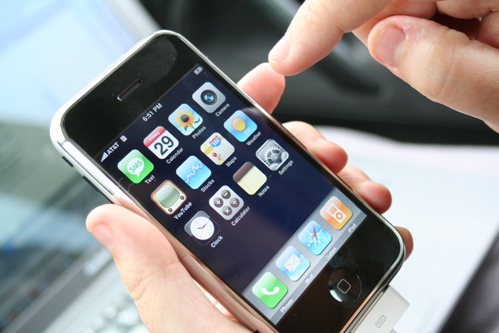
The company behind Cydia, an iPhone app store that launched before Apple's own App Store, has sued Apple arguing that Apple has monopolized the market for iOS app stores, violating antitrust law in the process.
When the iPhone was introduced in 2007, it didn't have any mechanism for natively running third-party software. Instead, Steve Jobs encouraged developers to create Web apps that would run in the iPhone's Safari browser.
But people soon figured out how to jailbreak the iPhone and began making iPhone apps without Apple's help. Seeing an opportunity, software developer Jay Freeman created a program called Cydia that made it easy for users to download and install native iPhone apps—an app store before the App Store.
A few months later, Apple introduced its own official App Store. Ever since, Apple has tried to drive Cydia and other unauthorized app stores out of the market using both technological and contractual restrictions. For example, anyone who wants to sell software through the official App Store must agree not to offer the software in competing app stores like Cydia.
In a Thursday lawsuit filed in California federal court, the company behind Cydia argues that this was a flagrant violation of antitrust law. "Apple has wrongfully acquired and maintained monopoly power in the market for iOS app distribution, and in the market for iOS app payment processing," the lawsuit argues.
The lawsuit points to a number ways this has harmed consumers and the app industry. Most obviously, Apple charges a 30 percent commission on most app purchases—recently reduced to 15 percent for apps that earn less than $1 million. Cydia argues that Apple couldn't get away with such high fees in a competitive market.
Cydia also argues that Apple takes a long time to approve apps and limits direct communications between developers and their users. Again, Cydia argues that more competition would force Apple to up its game.
An Apple spokeswoman didn't provide an on-the-record comment about the lawsuit. But we can get some idea of the company's likely response by looking at Apple's August filing in Epic's antitrust lawsuit. In that case, Apple argued that its app store strategy couldn't have violated antitrust law because it had "exponentially increased output, reduced prices, and dramatically improved consumer choice."
Apple also argued in the Epic case that there wasn't a separate "iOS App Distribution Market." Rather, in Apple's view the iPhone and its app store are two parts of a single product. In Apple's view, antitrust law gives Apple broad flexibility to decide how to monetize this platform.
This is a recurring theme in antitrust cases related to the technology sector. In the 1990s, the US government sued Microsoft for tying its operating system to its Web browser. Microsoft insisted that the Internet Explorer browser wasn't a separate product but was rather a new feature of Windows. A trial court rejected Microsoft's arguments, but that ruling was partially overturned on appeal. The case was settled soon after George W. Bush took office, with Microsoft agreeing to make modest changes to its business model.Since then, there have been few if any successful antitrust lawsuits challenging this kind of integration between technology products. And Apple points out that it is far from the only hardware maker to tightly control third-party software on its platform. For example, Apple argues that Cydia's argument implies that Sony, Microsoft, and Nintendo are also monopolists, since they try to control who makes software for their gaming consoles.
Article From & Read More ( Apple’s app store is an illegal monopoly, rival Cydia claims in suit - Ars Technica )https://ift.tt/37apQva
Technology
Bagikan Berita Ini














0 Response to "Apple’s app store is an illegal monopoly, rival Cydia claims in suit - Ars Technica"
Post a Comment